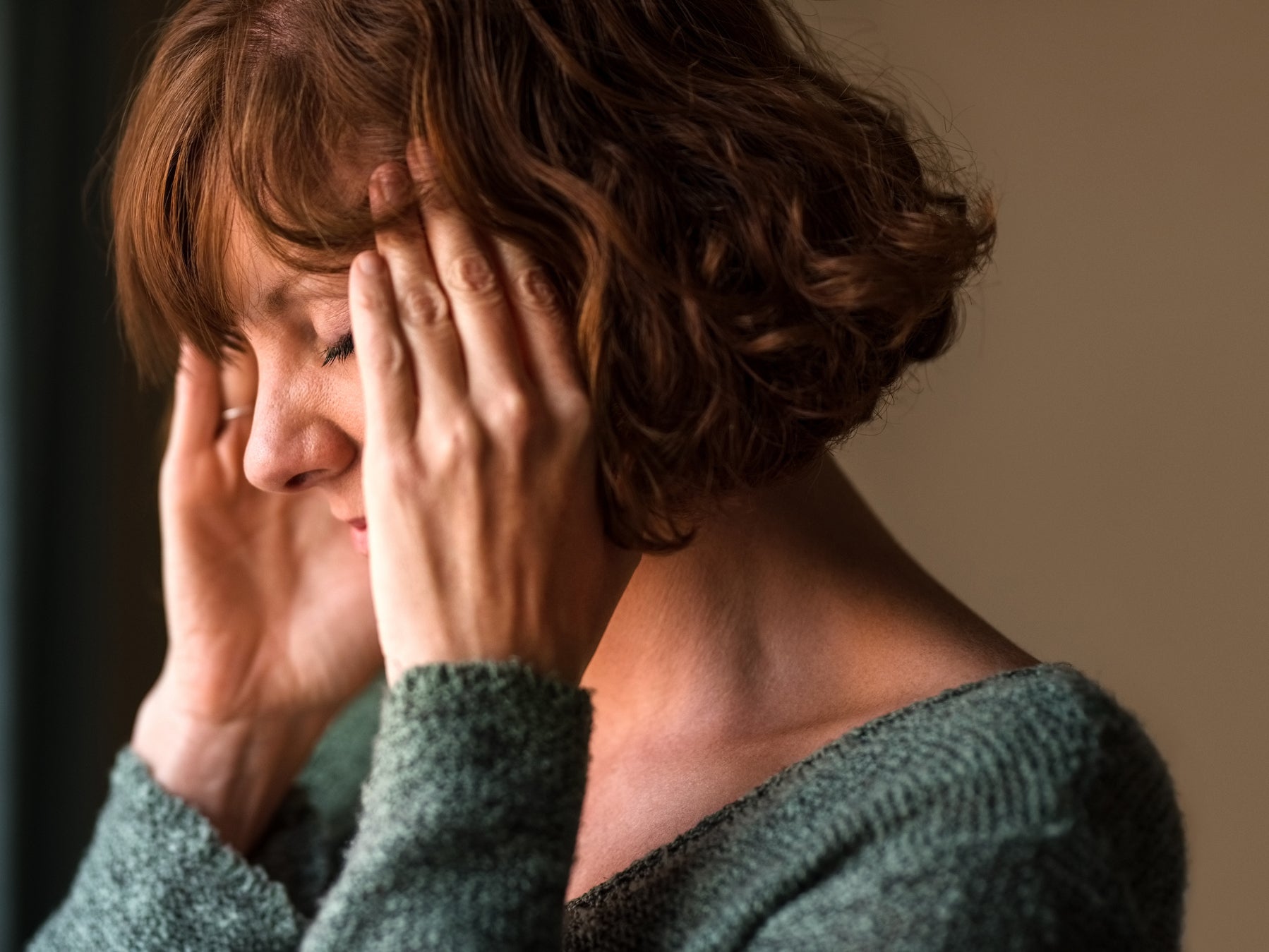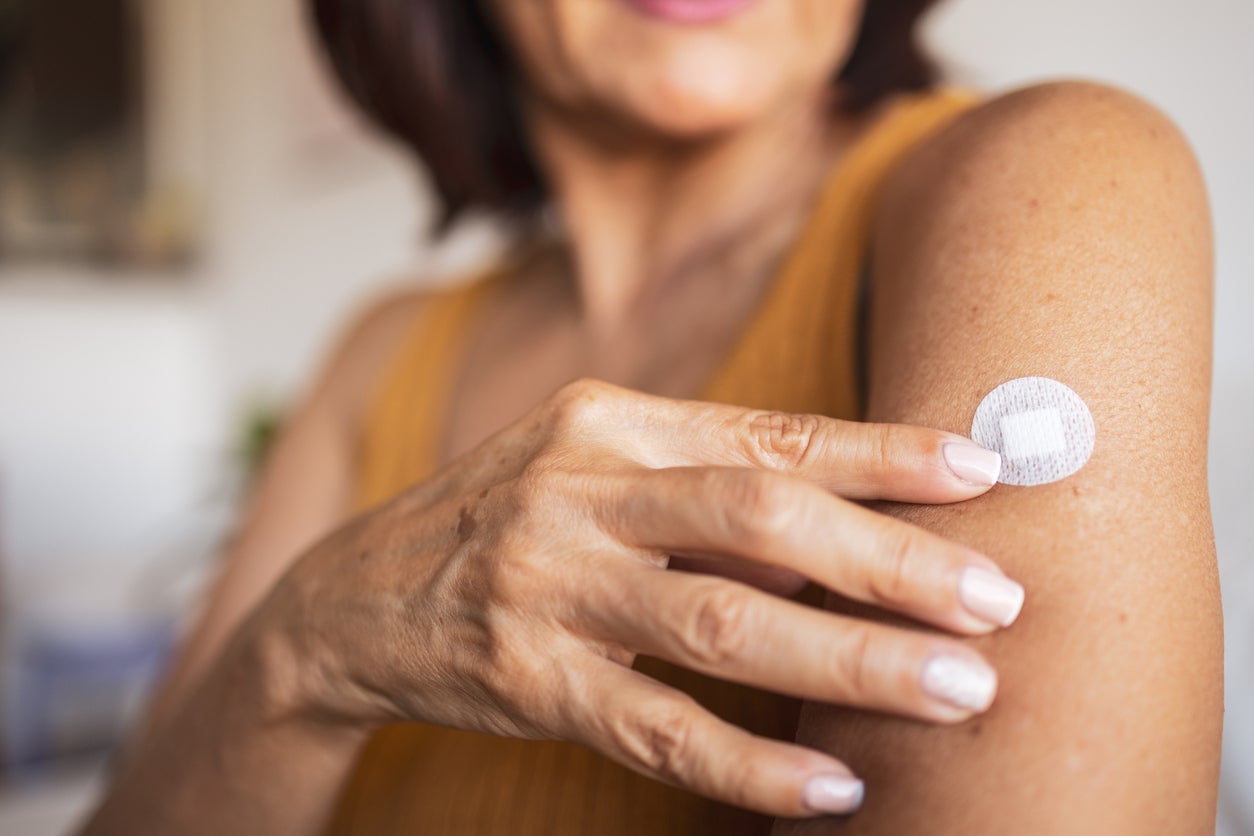Millions of women in England are set to benefit as NHS health checks will, for the first time, include questions about menopause.
Health Secretary Wes Streeting stated that women have been "suffering in silence for too long", adding the update will provide "visibility and support" for those experiencing symptoms such as hot flushes, mood swings, and trouble sleeping.
Menopause, typically occurring between 45 and 55, happens when periods stop due to lower hormone levels. The transitional perimenopause phase can last for years before a woman’s final period.
NHS health checks are offered to eligible people aged 40 to 74 every five years.
Their aim is to detect people at risk of developing conditions such as heart and kidney disease, type 2 diabetes, dementia and stroke.

The inclusion of questions about menopause will aim to raise awareness about symptoms and also give women confidence to seek help, officials said.
Specific questions will be developed over the coming months, with guidance from health experts.
The addition could benefit almost five million women, the Department of Health and Social Care (DHSC) estimates.
Mr Streeting said: “Women have been suffering in silence for far too long and haven’t been encouraged to open up about the symptoms they’re experiencing.
“This often means they’re left to navigate menopause alone, with very little support – all because of an outdated health system that fails to acknowledge how serious it can be.
“No one should have to grit their teeth and just get on with what can be debilitating symptoms or be told that it’s simply part of life.
“This Government is overhauling women’s healthcare and giving those experiencing menopause and perimenopause the visibility and support they have long been asking for.”
Hormone replacement therapy (HRT), which replaces the hormones that are at low levels, is the main treatment for menopause.

Other medicines can help with specific symptoms like hot flushes and mood swings.
It is estimated that three-quarters of women have symptoms such as weight gain, joint pain, memory issues and brain fog.
However, according to DHSC, fewer than one in 10 feel they have enough information to cope with the changes.
Women’s health ambassador Dame Lesley Regan said 400,000 women in the UK will become menopausal this year, but the “vast majority” have little knowledge of varied symptoms.
She added: “There is an inevitability that every girl and woman who has menstrual periods will become menopausal, some earlier than others.
“Which is why it is so important that we provide all girls and women with the information and supportive healthcare they need to deal with their menstrual health and their menopausal health and wellbeing so that they are not disabled or disadvantaged by easily treatable symptoms that prevent them from contributing to society.
“When we get it right for women, everyone benefits.”
Dr Sue Mann, national clinical director in women’s health at NHS England, said: “Far too often we still hear women say their concerns aren’t listened to or that they aren’t getting enough support for the debilitating symptoms that can come with the menopause, many of which can have a big impact on their lives and can be invisible to others.
“We want to change that – no one should have to put on a brave face or feel they are facing symptoms of menopause or perimenopause on their own.
Common symptoms of menopause and perimenopause
NHS
Common physical symptoms include:
- hot flushes, when you have sudden feelings of hot or cold in your face, neck and chest which can make you dizzy
- difficulty sleeping, which may be a result of night sweats and make you feel tired and irritable during the day
- palpitations, when your heartbeats suddenly become more noticeable
- headaches and migraines that are worse than usual
- muscle aches and joint pains
- changed body shape and weight gain
- skin changes including dry and itchy skin
- reduced sex drive
- vaginal dryness and pain, itching or discomfort during sex
- recurrent urinary tract infections (UTIs)
- sensitive teeth, painful gums or other mouth problems
“By tailoring NHS health checks to include questions around menopause, we hope more women will get the support they need to manage their symptoms – and this is testament to our ongoing commitment to improving treatment, care and quality of life for women.”
Experts also highlighted potential benefits for the economy in increasing the awareness of menopause and its symptoms.
Menopause employment ambassador Mariella Frostrup described including menopause in NHS health checks as a “major leap forward” for both women and business.
“When women understand their own biology and the changes that come with midlife, they’re better equipped to look after their health and their careers,” she added.
“It’s good for women, good for the economy, and good for employers who want to retain experienced talent.
“I’m delighted that menopause will now be a central part of health checks for every woman walking into midlife.”
Janet Lindsay, chief executive at Wellbeing of Women, welcomed the plans but warned not all women have access to NHS health checks.
She said: “Despite growing awareness of menopause in recent years, stigma and shame around women’s health persist.
“Too many still do not reach out for help — often because they don’t recognise what they’re experiencing as menopause or are unaware of the support available.
“However, not all women access these health checks. Women and people from marginalised communities are less likely to know about or attend these appointments, and progress on menopause support cannot leave them behind.
“Healthcare professionals must work with grassroots organisations embedded in these communities to ensure that those facing additional barriers receive the tailored care they need.”
Experts warn thousands could be living with Parkinson’s but not know
Government still taking too long to compensate blood scandal victims, MPs say
CQC chief executive steps down amid maternity inquiry at NHS trust he used to run
Why poor sleep and high blood pressure increase the risk of dementia
Wood burning fires in homes linked to 2,500 deaths a year in the UK, report says
Study identifies the major downside of wearing a fitness tracker







